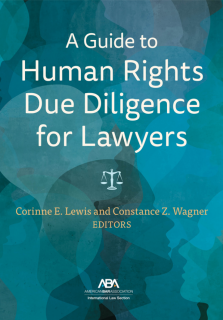| Bush II, Obama, and the Decline of U.S. Hegemony in the Western Hemisphere » |
Chapter 11: Human Rights Due Diligence Practices for Adequate and Effective Consultation with Indigenous Peoples
Link: https://www.americanbar.org/products/inv/book/425551802/
By Thomas Andrew O’Keefe
I. Introduction
The United Nations estimates that there are some 370 million Indigenous peoples
persons living around the world in over 90 countries. Due to widespread marginalization and discrimination, Indigenous peoples often find themselves mired in poverty and, therefore, especially vulnerable to the negative impacts of business activities. While Indigenous peoples may represent only about five percent of the world’s population, estimates indicate that over half of the world’s remaining mineral resources may be located in their territories. Consequently, there is considerable risk that government licenses or concessions for development and investment activities will detrimentally impact Indigenous peoples’ relationship to their lands, and cause environmental degradation, and pollution.
This chapter examines the legal obligation of prior consultation arising under the International Labour Organization Convention 169 on Indigenous and Tribal Peoples (ILO) 169) as well as the principle of free, prior, and informed consent contained in the UN Declaration on the Rights of Indigenous Peoples (UNDRIP). The chapter then explores how both ILO 169 and the UNDRIP have influenced the development of a series of guidelines and standards for businesses whose activities may detrimentally impact Indigenous peoples. The chapter also discusses how these guidelines and standards can be used to fashion a business enterprise’s internal human rights due diligence policies and practices to ensure it supports, respects, and promotes the human rights of Indigenous peoples, including adequate and effective consultation.
This chapter’s geographical focal point is the Western Hemisphere since this is the area of the world with the largest concentration of Indigenous peoples, in some cases making up close to, if not the majority, of a country’s population, and the greatest number of States that have ratified international legal instruments requiring prior consultation with Indigenous peoples. In addition, the inter-American human rights system has the most extensive substantive jurisprudence on consultation and consent. Hence, the Americas offer a plethora of examples that provide practical guidance for countries in other regions of the world on what constitutes adequate and effective consultation, not to mention decades of cumulative errors to avoid.
